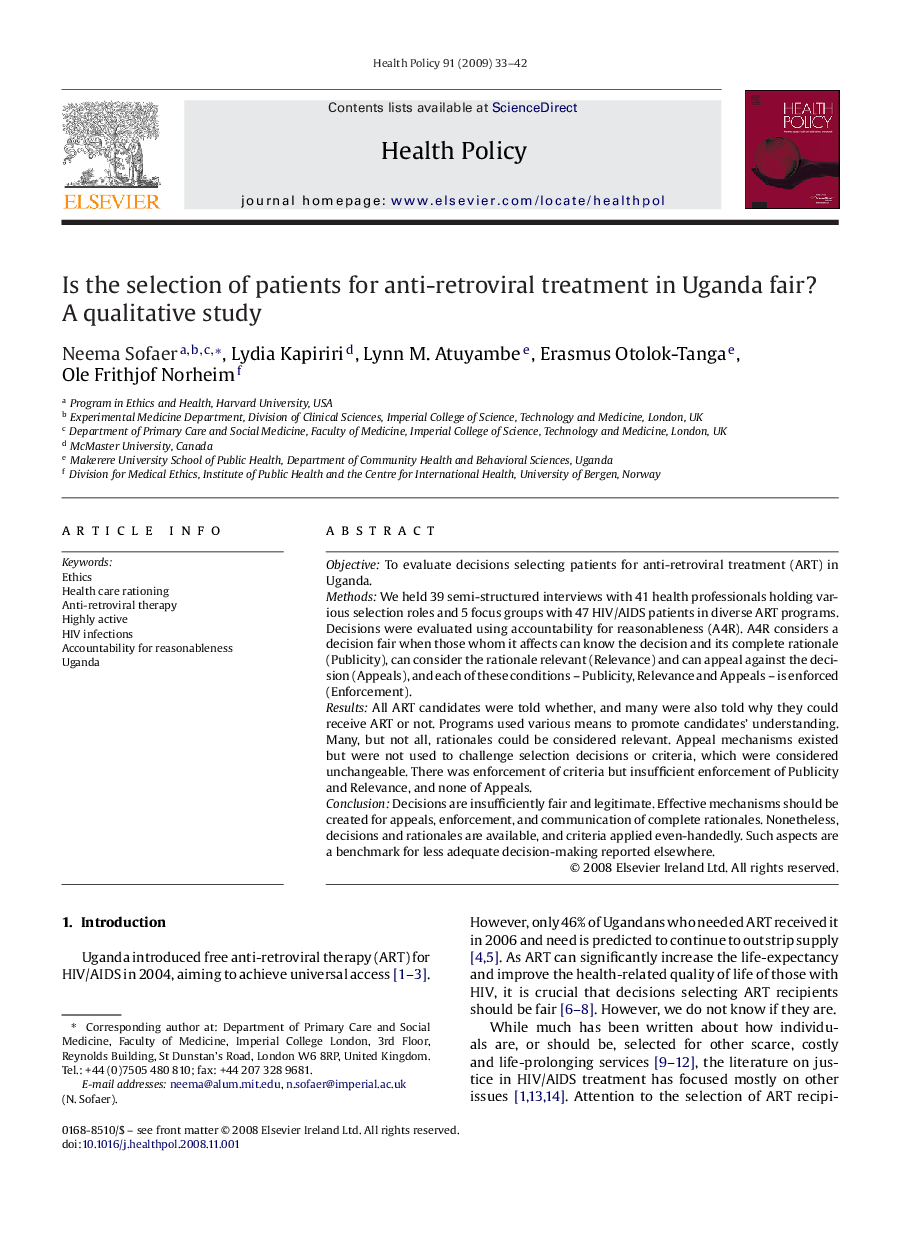| Article ID | Journal | Published Year | Pages | File Type |
|---|---|---|---|---|
| 4198548 | Health Policy | 2009 | 10 Pages |
ObjectiveTo evaluate decisions selecting patients for anti-retroviral treatment (ART) in Uganda.MethodsWe held 39 semi-structured interviews with 41 health professionals holding various selection roles and 5 focus groups with 47 HIV/AIDS patients in diverse ART programs. Decisions were evaluated using accountability for reasonableness (A4R). A4R considers a decision fair when those whom it affects can know the decision and its complete rationale (Publicity), can consider the rationale relevant (Relevance) and can appeal against the decision (Appeals), and each of these conditions – Publicity, Relevance and Appeals – is enforced (Enforcement).ResultsAll ART candidates were told whether, and many were also told why they could receive ART or not. Programs used various means to promote candidates’ understanding. Many, but not all, rationales could be considered relevant. Appeal mechanisms existed but were not used to challenge selection decisions or criteria, which were considered unchangeable. There was enforcement of criteria but insufficient enforcement of Publicity and Relevance, and none of Appeals.ConclusionDecisions are insufficiently fair and legitimate. Effective mechanisms should be created for appeals, enforcement, and communication of complete rationales. Nonetheless, decisions and rationales are available, and criteria applied even-handedly. Such aspects are a benchmark for less adequate decision-making reported elsewhere.
